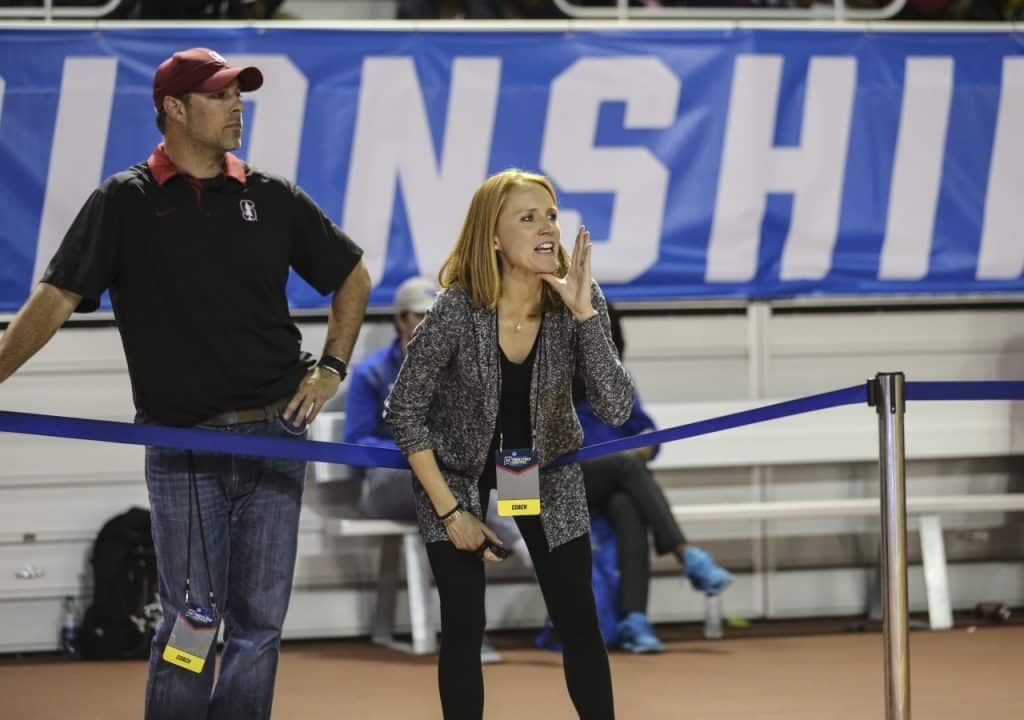
Elizabeth DeBole is a former collegiate coach at Stanford University, 4-time All American at Georgetown and a Olympics Trials Qualifier. She’s now private coaching on V.O2 with a focus on guiding athletes through the recruiting process and transitioning from high school to college.
How did you get into running?
I started running in 7th grade with our high school team. I actually went to school with a tennis racket and every intention of trying out for the tennis team, but my friends were doing cross country so I went with them! I went to a small, all-girls school in New York and middle schoolers are able to compete with the high school. I ran modified cross country and realized I was pretty good at it and stuck with it. I haven’t stopped since!
What were your athletic highlights in high school and college and why?
In high school I’d have to say setting the 1500m state meet record my senior year. It was a rainy, gross day at the state meet and I was fired up to compete against some of the girls from indoor (I lost the indoor state meet and was not happy about it). I remember pulling away on the third lap and kept going. It was the best I had raced. I felt super confident and I went in with a purpose and executed really well.
In college, it was probably my first All-American race my junior year. I went into college with big goals but I had a rough start to my career at Georgetown. I was injured a lot. I had a hard time getting back into shape…lots of disappointments my first couple of years. I almost stopped running several times. But my junior year I worked really hard, took better care of myself and really committed to training and racing. By the end of the year, every race I ran I was getting faster and I qualified for the NCAA Championships as a bit of a surprise.
I went to NCAAs and qualified for the final…then in the final I started my kick with 250m to go, ran a massive personal best, and earned All-American status. It was really the journey to get to that moment that I’m most proud of. College wasn’t smooth sailing after that either, but I had proven to myself that I could do it…so I stuck with it!
What were some challenges you faced transitioning from high school to the college system?
EVERYTHING! I was not prepared for college in a lot of ways. It is my mission to help as many athletes be more prepared for college as I can. For me, it was a challenge to be part of a really good team. I was intimidated by the older athletes (I was not part of a large freshman distance group) and I was nervous to talk to my coaches. I was also intimidated to speak up in class. I was trying to study like I had in high school but there was A LOT more work. I got sucked into going out with the other freshmen on my floor, trying to make friends at parties and not sleeping. It was a terrible cycle of trying to do it all and not having a support system to lean on. Injury, injury, injury…not fun.
I did eventually figure it out and felt comfortable enough with my coaches to talk with them about training and life. I found the confidence to say I wanted to commit to running so I cut out a lot of the extracurricular activities. I found my groove with school and realized ECON was just not for me. And I did find a group of really good friends – and honestly my teammates are who I still keep in touch with now, not the ones from my freshman dorm.
Ultimately, I was not expecting it to be hard…and it was. And I think that was the disconnect for me. I never had to ask for help in high school and all of a sudden I wasn’t getting straight A’s and I was injured and not sleeping and it was hard! I had to ask for help and once I did things started to turn around – it was a total mindset switch for me.
How should athletes prepare to adapt and thrive when transitioning to college? What are pitfalls to avoid?
Go in with an open mind and speak up with questions! You’re going to learn A LOT as a freshman. Everything is new – different coach, different teammates, different training, different warm ups. You’ll probably make a mistake here and there, and that’s ok, but be a sponge and soak up all the new info. Eventually you’ll be able to do all the “new” stuff in your sleep, but be patient with yourself until you get to that point.
Be sure to read your emails! Stay on top of where you’re supposed to be each day for practice and respond to the coaches and trainers. A lot of paperwork needs to be done for you to be eligible to practice and compete – so getting off on the right foot with compliance, trainers, and coaches is super important!
Make time to go sit down with your coach and talk. Let them get to know you as an athlete and a student. They want to make you successful so share what’s going on in your life! Your coach needs to know when midterms are (you might be more stressed than normal), how’s your roommate situation (maybe they snore and you can’t sleep so you’re more tired), are you fueling enough in the cafeteria (don’t eat salsa with your lunch before practice like I did…not good), how are you feeling in workouts and on the team. All of that is important for a coach to know. I recently heard someone say that the training is more important than the communication with an athlete. I could not disagree more! If you can communicate with your coach, you’ll really be set up for long term success.
How did your approach to training/racing evolve as you transitioned from athlete to coach? What were some big things you learned during that process and as you gained more experience working with young athletes?
I think the biggest shift was learning to separate success on the track with success as a person. When I was in high school and college, and even as a professional – my identity was so intertwined with running well that if I ran well, I was good…if I ran poorly, I was not. As an athlete, you put so much time and effort into training that when it doesn’t work out as you want, it can be devastating. It wasn’t until I was a coach that I saw the ridiculousness of that whole mindset!
Racing in high school and college is such a fun opportunity. It teaches you so much about yourself, but it doesn’t define you as a person. I really embraced that lesson as a coach. It’s heartbreaking to see an athlete struggle with poor performances, injury, and self doubt. Trying to instill that sense of self confidence that is not completely reliant on outcomes was really important for me. I also learned to enjoy the highs, feel the lows, and move on as a coach.
When you have 15 or 20 athletes someone is always going to have a good day and someone is always going to have a bad day – and you have to be there for both of them. That can be really hard! I had to learn to compartmentalize each performance and move on so I could be happy for those who ran well and help those who did not. I wish I learned that sooner as an athlete so I didn’t dwell on bad performances so much! I’d love to spread the word on that to all the young runners out there!
What are some quick dos and don’t regarding the college recruiting process?
DO have an open mind and have initial conversations with coaches. Look at lots of schools, see what’s out there. You may not think you want a big school…until you see it, then maybe you do! Or maybe it’s that small school in the mountains that is the one that clicks for you. You may as well look and see!
DO have a list of questions to ask coaches. Come up with some core questions that you ask each school you’re looking at. Then you can go back and compare when you get home. For instance, do freshmen athletes room together, do you meet for practice on the weekends, are there certain majors that conflict with practice time too much? Tip: all the coaches are going to say the food in their cafeterias is good. 🙂
DO visit in person (if you can) and when there are students on campus. I know that can be hard, but a campus gives off such a different vibe in the summer when there is no one there. It’s way better to experience it when the students are there. Definitely take advantage of official visits, that’s the best way to get to know a team!
DO fill out the online questionnaire, you just need to do it once and they’ll have your information. Don’t worry, they see it and will follow along for any improvements on the track! DON’T string coaches along. If you aren’t interested, just tell them. Saying no may feel awkward and awful, but you’re not the first athlete to say no to them and it lets them focus on others who are interested. DON’T be put off if a coach doesn’t respond right away. Rules don’t allow coaches to interact with student-athletes until June 15 after sophomore year – they can’t call or email you back. Try again and keep the email quick with a few highlights and your contact info!
Connect with Coach Elizabeth on Instagram and on the VDOT Marketplace.
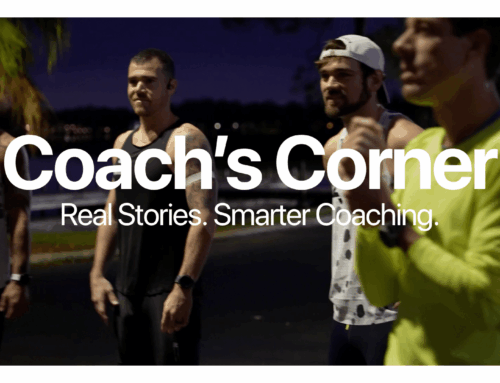
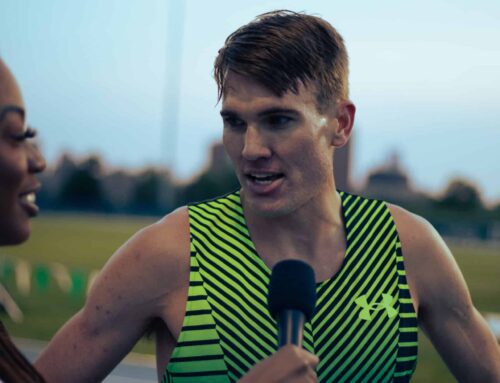
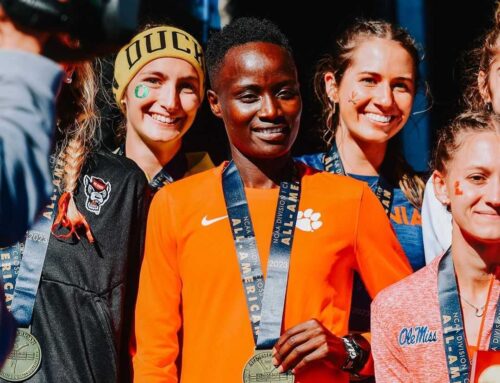
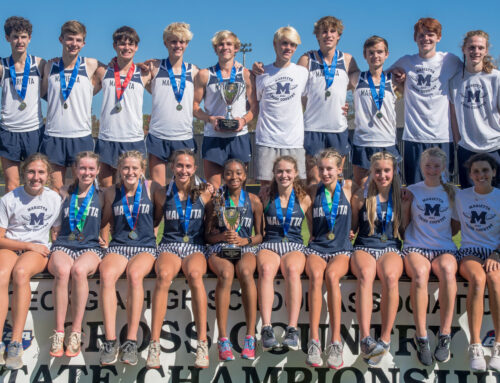
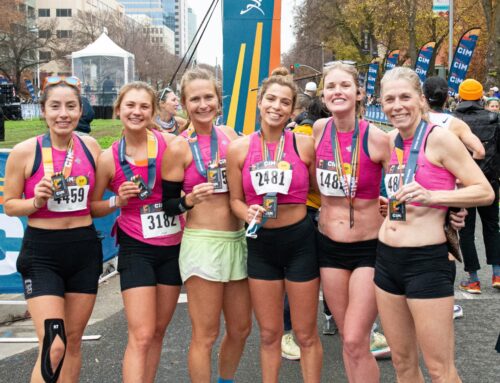
Leave A Comment